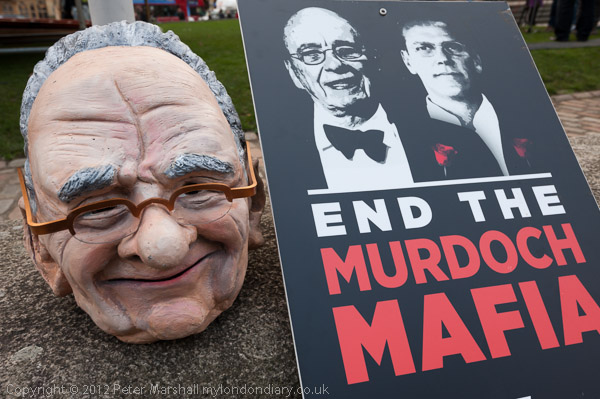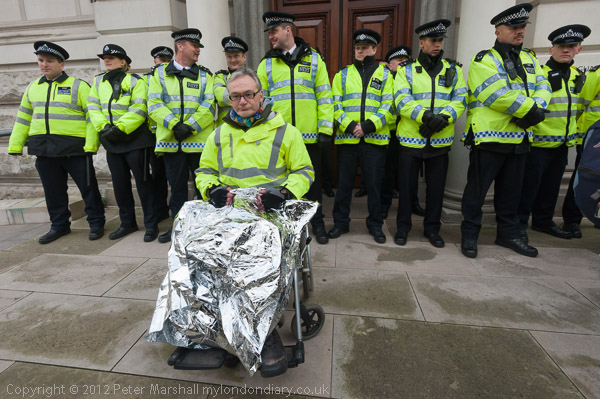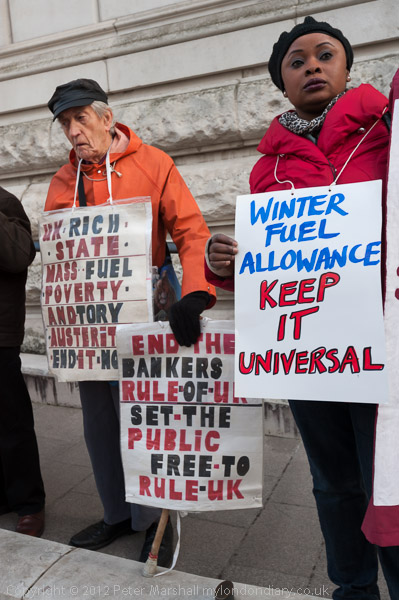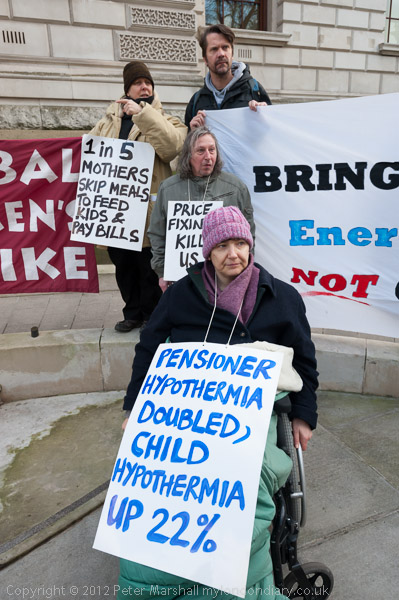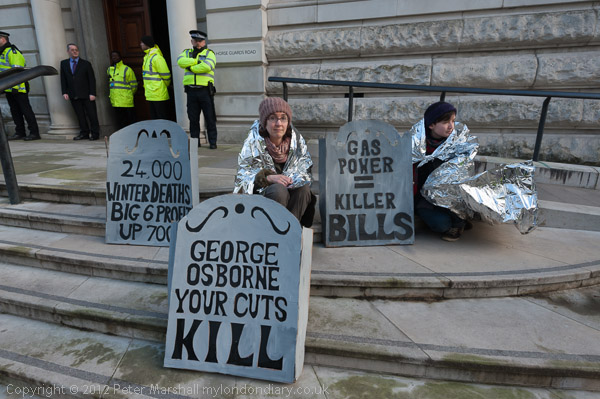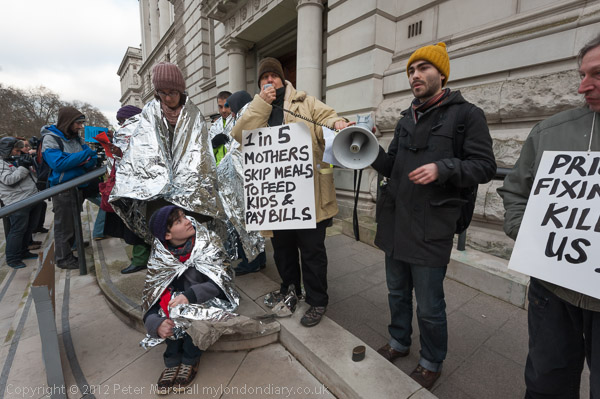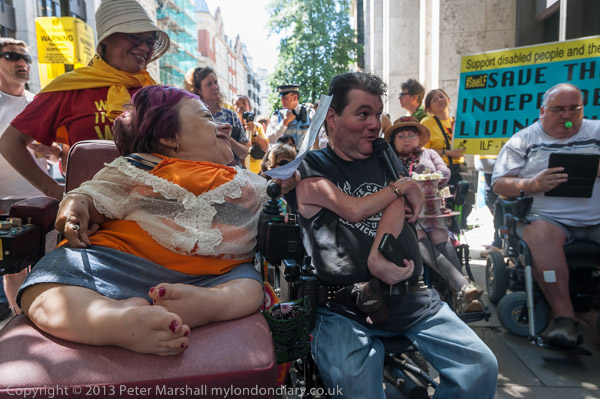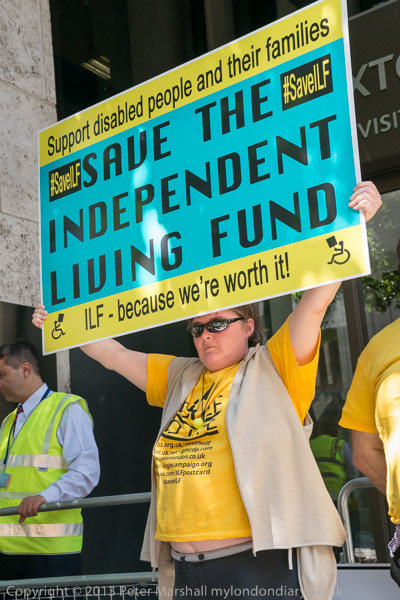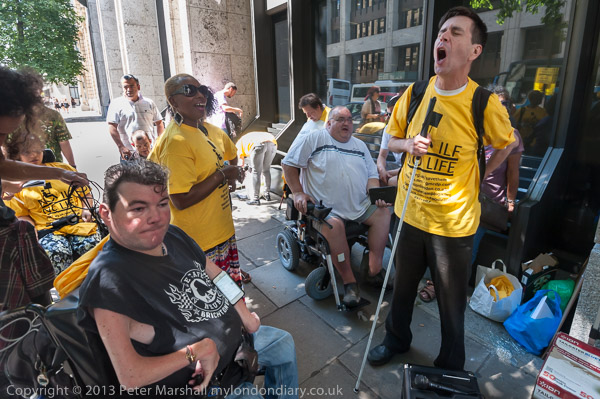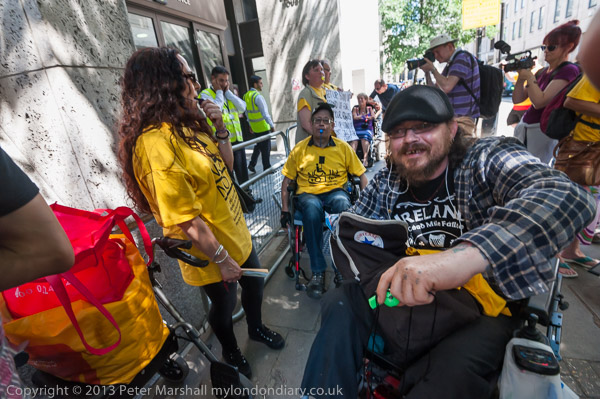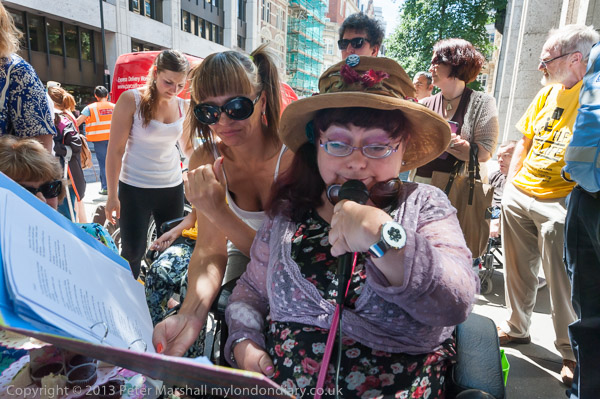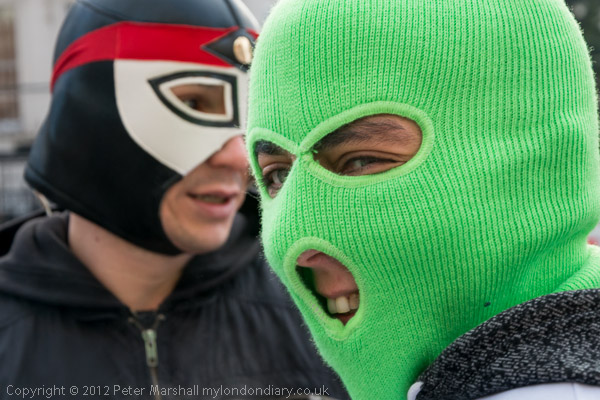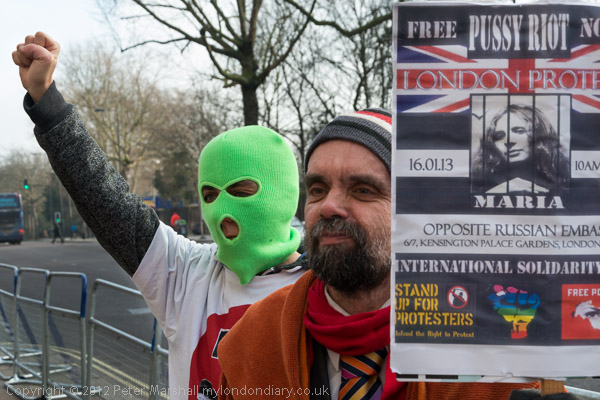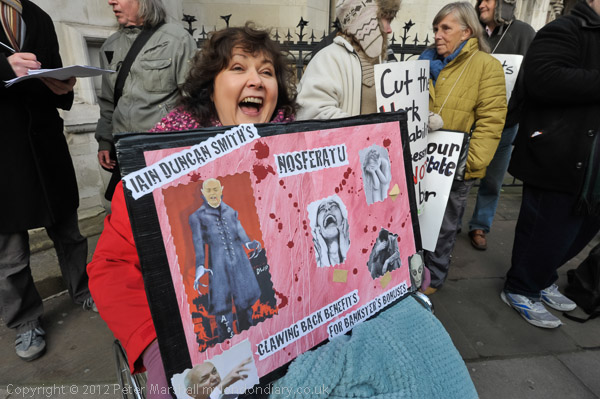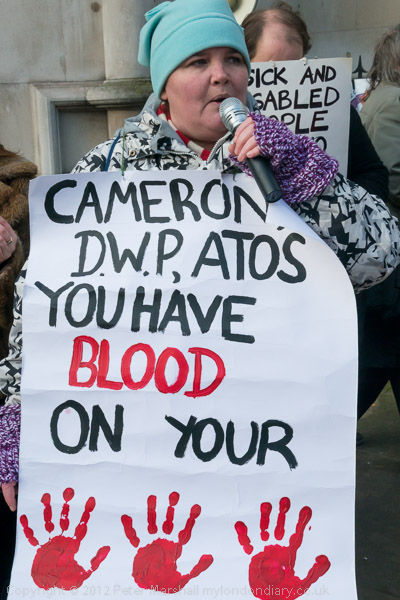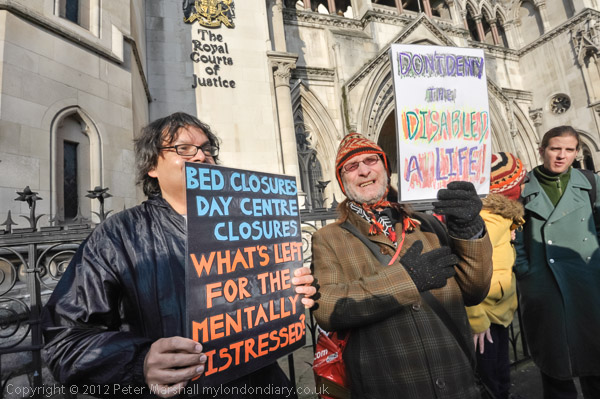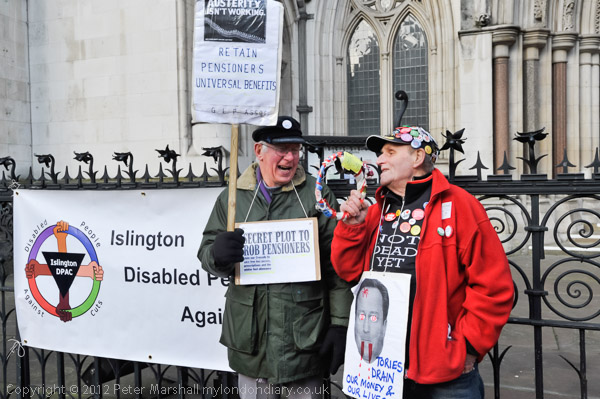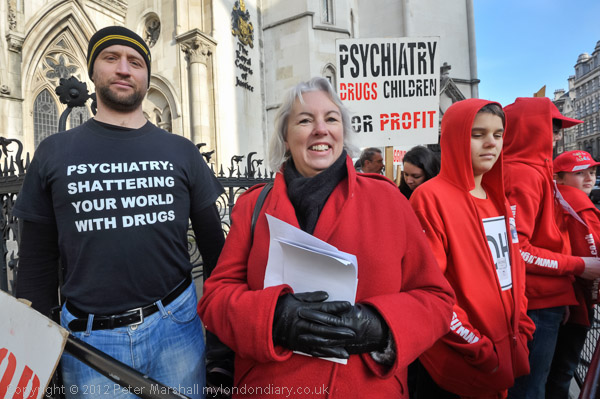Cuts Kill, Turban Traveller & Brexit Bullies – The area outside the Houses of Parliament was busy on Wednesday 19th December 2018 with a protest by Disabled People Against Cuts, a welcome for a driver who had come from Delhi and arguments between remainers and Brexiteers. But the most newsworthy event was when a small group of extreme right Brexiteers spotted MP Anna Soubry walking to Parliament and went to harass her. By then other photographers had drifted off and I was the only photographer on the scene. It made the news headlines and though the the press accounts were laughably inaccurate, some of my pictures did get used even if my story filed with them was ignored.
As usual you can read more about all of these events and see more pictures by following the links to My London Diary below.
Cuts kill disabled people say protesters – Old Palace Yard
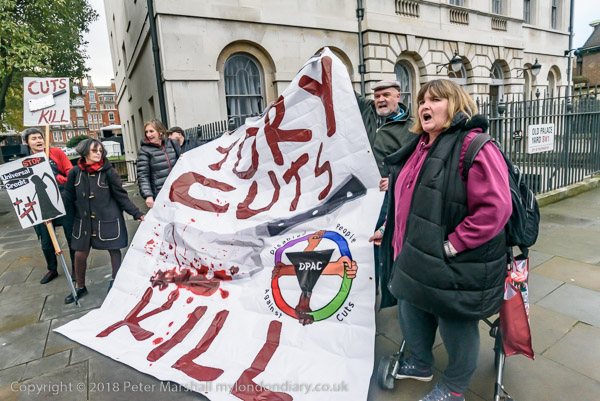
Disability groups DPAC (Disabled People Against Cuts) and MHRN (Mental Health Resistance Network) together with WOW campaign protested in support of the parliamentary debate due later in the day on the cumulative impact of the cuts on the lives of disabled people.
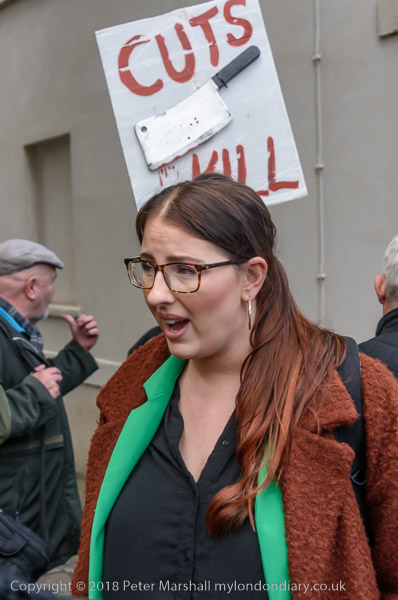
Laura Pidcock, then Labour MP for North West Durham and Lib-Dem peer Lord Roberts of Llandudno came out to talk with and support the protesters who said the the changes in benefits and inappropriate use of sanctions were resulting in great hardship, denying people their rights and causing many deaths. Labour MP for Ealing Virendra Sharma, there for another event also had a lengthy talk with the protesters.
Cuts kill disabled people say protesters
MP welcomes Delhi to London driver
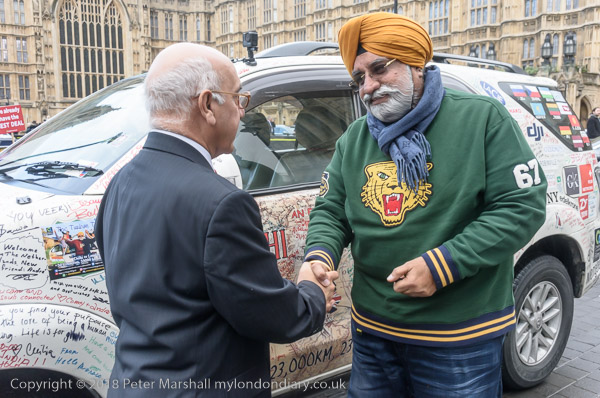
British-Indian Labour MP for Ealing Southall Virendra Sharma whose constituency includes very many Sikhs and those from other Indian communities had come out to to welcome The ‘Turban Traveller‘, a Sikh with a film crew from Creative Concept Films in Delhi who arrived in London today after driving overland from Delhi.
MP welcomes Delhi to London driver
Extreme Brexiteers Clash with SODEM
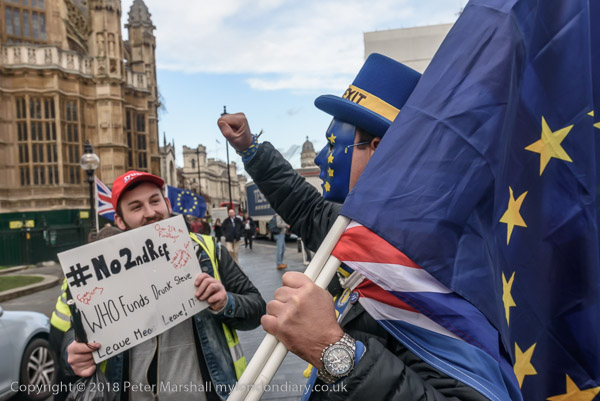
A small group of extreme right-wing pro-Brexit protesters had come to shout and argue with protesters from SODEM (Stand of Defiance European Movement) and to shout personal insults at Steven Bray who had founded SODEM in September 2017.
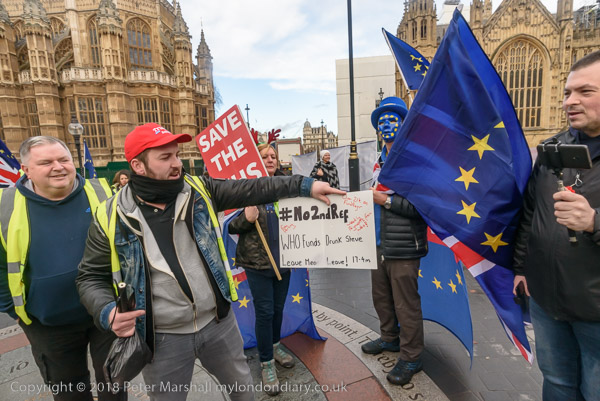
They accused Bray of being a drunk and asked “Who funds Drunk Steve“, a question that was rather redundant as two large banners were covered with logos of organisations supporting SODEM’s daily pickets.
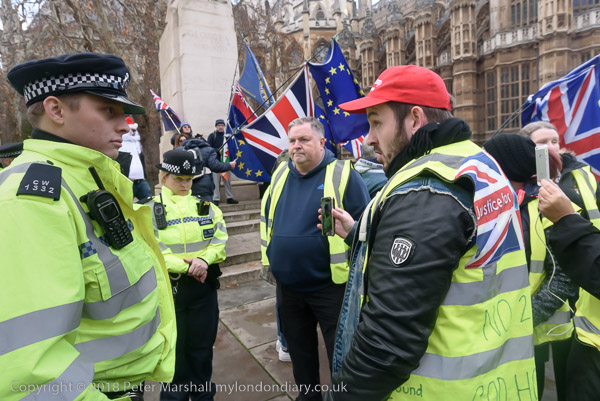
Police warned the Brexiteers about the language they were using and were accused of taking sides, but the SODEM people were not shouting and using offensive language. Eventually the Brexiteers moved away to continue their protest on the pavement in front of the Houses of Parliament.
Extremist Brexiteers clash with SODEM
Extremist Brexiteers at Parliament
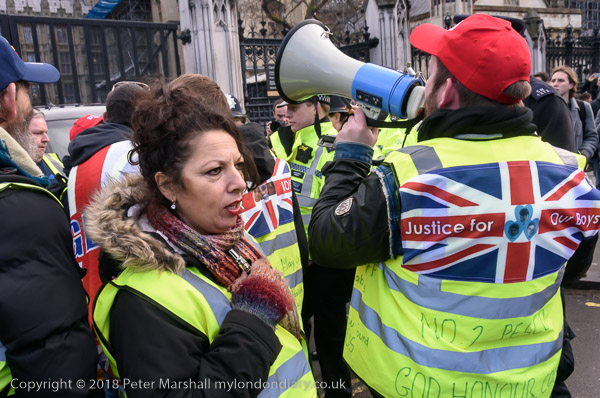
A small group of extreme right Brexiteers wearing high-viz vests with Union flags and the message ‘Justice for Our Boys’ protested outside parliament calling for an immediate Brexit and attempted to stop vehicles leaving parliament but were moved away by police.
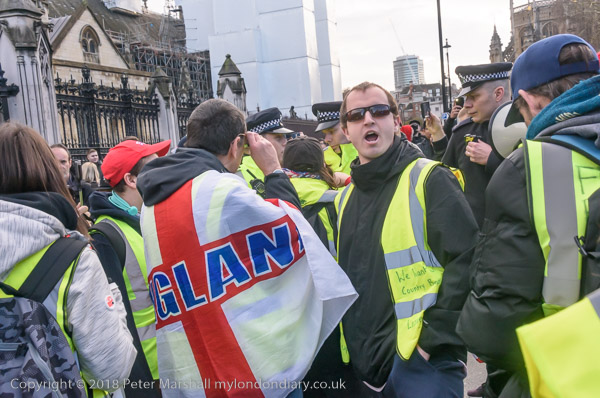
I recognised many of them; some from the video of an attack on the socialist bookshop Bookmarks earlier in the year and others from protests by the EDL and other extreme right groups.
Some of them then went to try and enter the by the visitors entrance and I went with them and took more pictures. But most soon left, probably to a nearby pub.
Extremist Brexiteers at parliament
Anna Soubry MP Harassed by Extremists
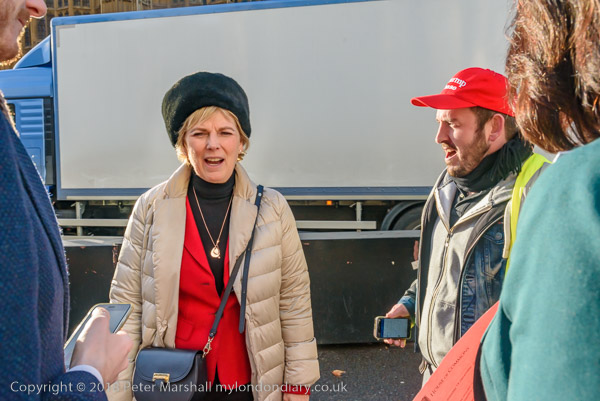
I hung around watching the few who remained when all the other photographers had moved away to file their pictures of the protest at the gates to parliament, wondering what they might do next.
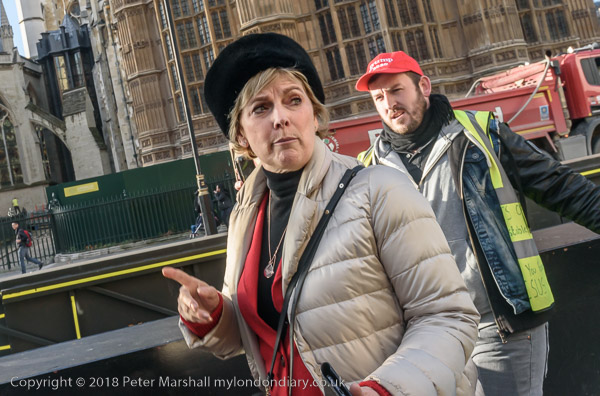
One of them shouted to the others as he recognised Conservative MP Anna Soubry walking along the pavement to go into the House of Commons, and they met her and began calling her a traitor and asking her way she was suggesting there might be a second referendum. She clearly knew the man leading the group, addressing him by name.
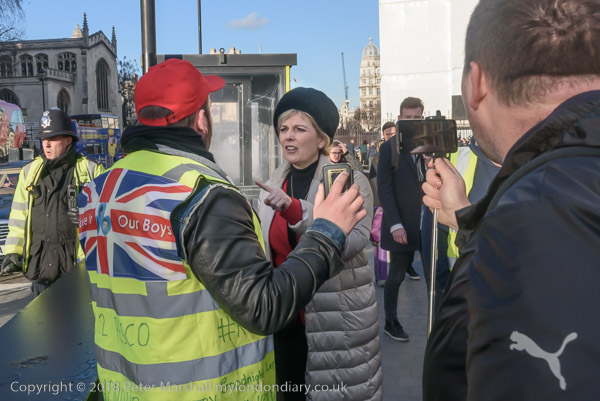
She tried to walk away along the pavement, but they followed, some standing in her way (and in mine) and after another in the group shouted at her ‘You fucking traitor!’ she turned to one of the several police officers around and complained to him that this was an offence, and remained standing close to him.
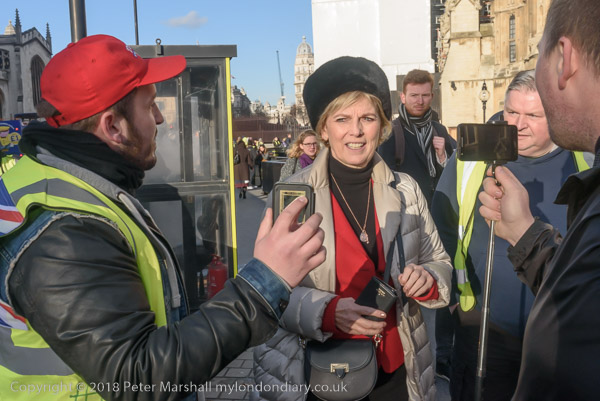
Other officers came across to help and quickly escorted her away and into Parliament. There were no immediate arrests, but the incident later became subject to an inquiry by the speaker of the house, who extended his sympathy to Ms Soubry.
In later interviews she complained that she had been compared to the Nazis, but I had not heard this at any point in the exchanges. Though as I wrote. “I was busy moving backwards in a fairly confined space while trying to keep her in shot while she was walking briskly away, with one of the protesters who was filming on his phone in my way.”
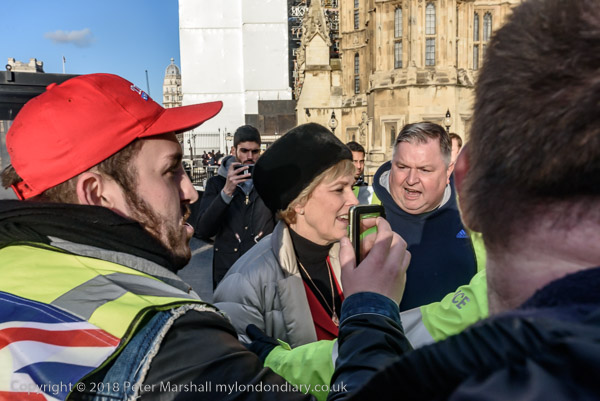
It was certainly an unpleasant incident but perhaps one that became rather exaggerated. She was never in any real danger and although the questioning was certainly loud and aggresive she responded to it in a similarly forceful manner. Something that might be described by that old cliché as the “rough and tumble of politics”. I was rather surprised that she had not earlier simply asked one of the many police standing around for assistance or that none of them had seen and heard as I had and come to help.
I rushed away to file my pictures, and while one or two of these were fairly widely used I was never contacted about what happened despite being the only real witness to the event.
Flickr – Facebook – My London Diary – Hull Photos – Lea Valley – Paris
London’s Industrial Heritage – London Photos
All photographs on this page are copyright © Peter Marshall.
Contact me to buy prints or licence to reproduce.
